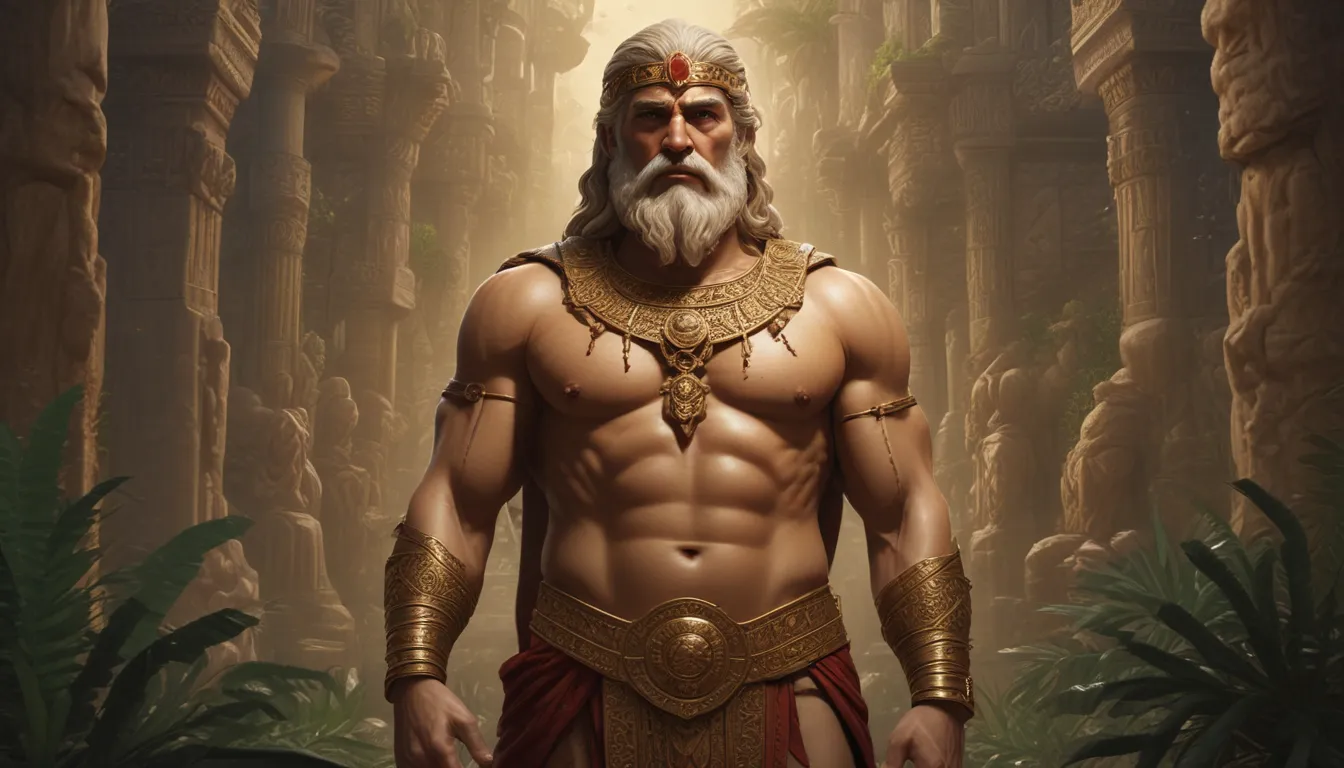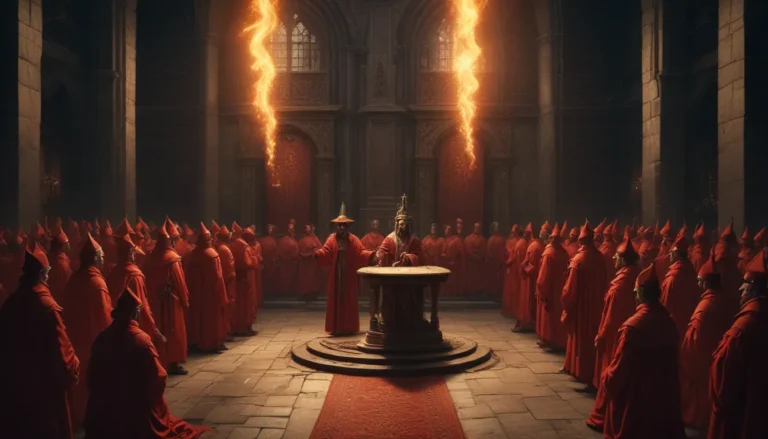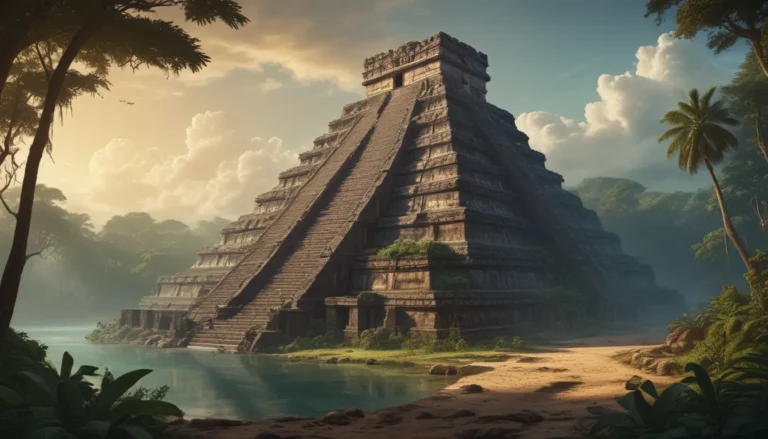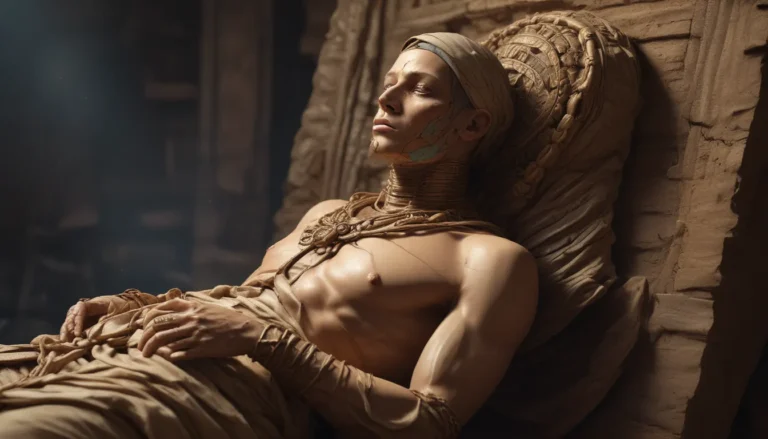The images in our articles may not match the content exactly. They are used to grab your attention, not to show the exact details in the text. The images complement the text but do not replace it.
Have you ever pondered the enigmatic figure of Gilgamesh and the timeless allure of his adventures that have transcended centuries? Gilgamesh is not just a distant historical figure; he is a legend intertwined with myths, whose tales have captured the imagination of people for generations. As a king, hero, and demigod hailing from ancient Mesopotamia, Gilgamesh’s epic narrative stands as one of the earliest great works of literature, filled with encounters with monsters, encounters with gods, and a relentless quest for immortality. Join us as we embark on a riveting exploration of the 23 best Gilgamesh facts that will astonish, intrigue, and perhaps even inspire you. From his extraordinary feats to his profound search that reverberates through the epochs, get ready to delve into the extraordinary world of Gilgamesh like never before.
Unveiling the Enigma of Gilgamesh
Gilgamesh, a name that reverberates through the mythologies of ancient times, was no ordinary character. He ruled as a king of Uruk, a majestic city in Mesopotamia, believed to have reigned around 2700 BCE. However, Gilgamesh’s legacy transcends mere historical records, as he emerged as the central protagonist in the Epic of Gilgamesh, one of the earliest literary works in human civilization. This epic poem intricately unfolds the chronicles of his exploits, his relentless pursuit of immortality, and the profound friendship he shared with Enkidu, a wild being created by deities to challenge Gilgamesh’s autocratic rule.
Unveiling Gilgamesh’s Divine Essence
Among the myriad attributes ascribed to Gilgamesh in ancient texts, one of the most compelling is his divine lineage. Often depicted as two-thirds god and one-third human, Gilgamesh emerges as a figure of unparalleled strength and wisdom juxtaposed against the mortal realm.
Deciphering the Revered Epic of Gilgamesh
The Epic of Gilgamesh transcends the conventional portrayal of a monarch’s heroic exploits; it delves into the intricacies of human existence, exploring themes ranging from profound friendships to the inevitability of death and the elusive pursuit of eternal life. The epic, inscribed on twelve tablets in cuneiform script, was unearthed in the mid-19th century amidst the remains of the Library of Ashurbanipal in Nineveh.
- Esteemed as one of the earliest known literary works, the Epic of Gilgamesh dates back to the Third Dynasty of Ur, approximately around 2100 BCE.
- Scholars posit that the epic’s influence reverberated across subsequent literary creations, including narratives within the Bible such as Noah’s Ark and the Garden of Eden.
The Bromance of Gilgamesh and Enkidu
Central to the narrative tapestry of the Epic of Gilgamesh is the poignant bond shared between Gilgamesh and Enkidu. Initially thrust into conflict by divine machinations, Enkidu metamorphoses into Gilgamesh’s most cherished friend, catalyzing transformative growth in the king’s character and leadership.
- Enkidu’s demise resonates profoundly with Gilgamesh, propelling him on a philosophical odyssey to unravel the enigma of existence and mortality.
The Eternal Quest for Immortality
Following Enkidu’s demise, Gilgamesh becomes ensnared in an obsessive pursuit of eternal life, driven by an inherent dread of death. His arduous expedition leads him to encounter Utnapishtim, the sole survivor of a catastrophic deluge orchestrated by the gods, who attained immortality.
- Despite the futility of Gilgamesh’s quest for eternal life, his journey unfolds profound revelations on the essence of human existence and the legacy forged through impactful actions.
Gilgamesh’s Ephemeral Legacy
Gilgamesh’s enduring legacy extends far beyond the confines of ancient epochs. His epic saga has been translated into myriad languages, persistently studied and revered for its profound illumination of human nature and the complexities of life.
- The momentous rediscovery of the Epic of Gilgamesh in the 19th century, nestled within the clay tablets excavated from the ruins of the library of Ashurbanipal, revitalized interest in this ancient masterpiece.
- Gilgamesh’s relentless pursuit of immortality and eventual reconciliation with mortality resonate with contemporary readers, cementing the Epic of Gilgamesh’s standing as a timeless literary gem.
- Inspired by Gilgamesh’s saga, a myriad of artistic, literary, and scholarly creations have proliferated across diverse cultural domains, affirming its status as a foundational pillar of world literature.
- Despite his dominion as a potent monarch and demigod, Gilgamesh’s tale encapsulates a quintessentially human narrative, replete with struggles, triumphs, and an evolutionary trajectory emblematic of the human journey.
- Uruk, the illustrious realm over which Gilgamesh reigned supreme, held prominence as a pivotal city in ancient Mesopotamia, acclaimed for the colossal fortifications attributed to Gilgamesh’s architectural prowess.
- While historical conjecture contemplates the veracity of Gilgamesh as a tangible monarch embellished through mythological embellishments, the enigmatic aura surrounding his existence remains a subject of scholarly discourse.
- The Epic of Gilgamesh emerges as a linchpin in unraveling the tapestry of ancient Mesopotamian ethos, shedding light on the religious, political, and cultural mores that underpinned one of humanity’s earliest civilizations.
- Groundbreaking strides in archaeology and textual translations have facilitated contemporary readers’ communion with Gilgamesh, fostering a newfound accessibility and relevance to this ancient epic.
- Gilgamesh’s thematic explorations of camaraderie, existential dread, and the quest for purpose resonate enduringly, underscoring the perennial relevance of this ancient narrative.
- Gilgamesh’s odyssey imparts a poignant truth that while the quest for immortality may remain elusive, the enduring impact of one’s deeds and the indelible memories forged can transcend temporal confines.
A Reverent Pondering of Gilgamesh’s Legacy
Gilgamesh, the paragon of epic heroes whose chronicles transcend temporal constraints, bequeaths us more than mere anecdotes of valor and peril. His peregrinations, etched indelibly on ancient clay tablets, beckon us to delve into the soul of antiquity, unravelling universal themes of friendship, the incessant quest for immortality, and the quintessence of human existence. These narratives, emerging from civilization’s primordial cradle, not only enrich our comprehension of Mesopotamian culture but also tether us to the ageless quest for meaning and self-discovery. As we unravel the tapestry of Gilgamesh’s realm, we are reminded of the transcendental influence of storytelling, bridging chasms between past epochs and our contemporary realities. His legend, enshrined through epochs, serves as an enduring fount of inspiration, contemplation, and wonder, delineating the timeless nature of narratives such as Gilgamesh’s.
Conclusion
A Testament to Gilgamesh’s Timeless Resonance
As we bid adieu to the ethereal realm of Gilgamesh’s epic odyssey, we depart imbued with a profound appreciation for the enduring legacy of this ancient colossus. His legend, intertwined with myths and verisimilitude, endures as a beacon illuminating the contours of the human experience, transcending epochs and geographical boundaries. Let us embrace the sagacity encapsulated within Gilgamesh’s saga, cherishing the timeless truths it imparts and the perennial quest for understanding our place in the cosmic tapestry. As we navigate the labyrinthine passages of existence, may Gilgamesh stand as a paragon of resilience, introspection, and transcendent wisdom, beckoning us to contemplate the enigmatic tapestry of life with unyielding curiosity and reverence.






